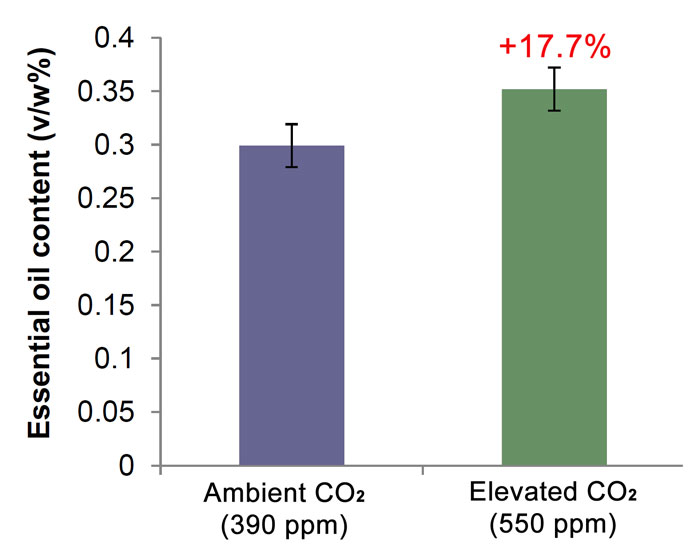| Tweet | Follow @co2science |
Paper Reviewed
Kaundal, M., Bhatt, V. and Kumar, R. 2018. Elevated CO2 and temperature effect on essential oil content and composition of Valeriana jatamansi Jones. with organic manure application in a western Himalayan region. Journal of Essential Oil Bearing Plants 21: 1041-1050.
In prefacing their work, Kaundal et al. (2018) say that Indian valerian (Valeriana jatamansi) is an important medicinal and aromatic herb that grows in steep, rocky and moist areas with sandy loam soil from Afghanistan to southwest China, and into India, Nepal, Bhutan and Burma. The herb is known for its essential oil extracted from its rhizomes and roots, which oils are in high demand in "flavor, pharmaceutical and perfumery industries [where] about 30 products [using the oil] are commercially available." In particular, the roots of the plant are "used for treating ulcers, convulsions, jaundice, cardiac debility, dry cough, asthma, seminal weakness, skin diseases, leprosy, general debility and for sleep enhancement." Unfortunately, the authors report that due to the high demand of Indian valerian's essential oil, this plant "is on the verge of becoming extinct" because of "over-exploitation of underground parts for its medicinal value."
Because rising levels of atmospheric CO2 typically promote plant photosynthesis and the production of secondary compounds, it stands to reason that the essential oil content of Indian valerian would also be augmented under elevated CO2, which increase could bode well for the survival of this important medicinal species. And so it was the objective of the three Indian researchers to examine the impact of elevated CO2 on the essential oil content of V. jatamansi.
The experiment was conducted in Palampur, India, at the research farm of the CSIR-Institute of Himalayan Bioresource Technology over the period November 2013 to March 2015. Plant seedlings (cv. Himbala) were sown in pots and subjected to ambient (390 ppm) or elevated (550 ppm) CO2 conditions in a free-air CO2-enrichment (FACE) environment. At the end of the experiment, root samples were extracted so that the impact of elevated CO2 on the essential oil content could be determined.
The results of the study are shown in the figure below, which reveals that elevated CO2 stimulated the essential oil content of Indian valerian by 17.7%, indicating in the words of the authors that "elevated CO2 in the future could have [a] positive effect." And that is great news for this endangered plant and for those who benefit from using its essential oil.

Figure 1. Effect of elevated CO2 on the essential oil content of V. jatamansi. Adapted from Kaundal et al. (2018).




